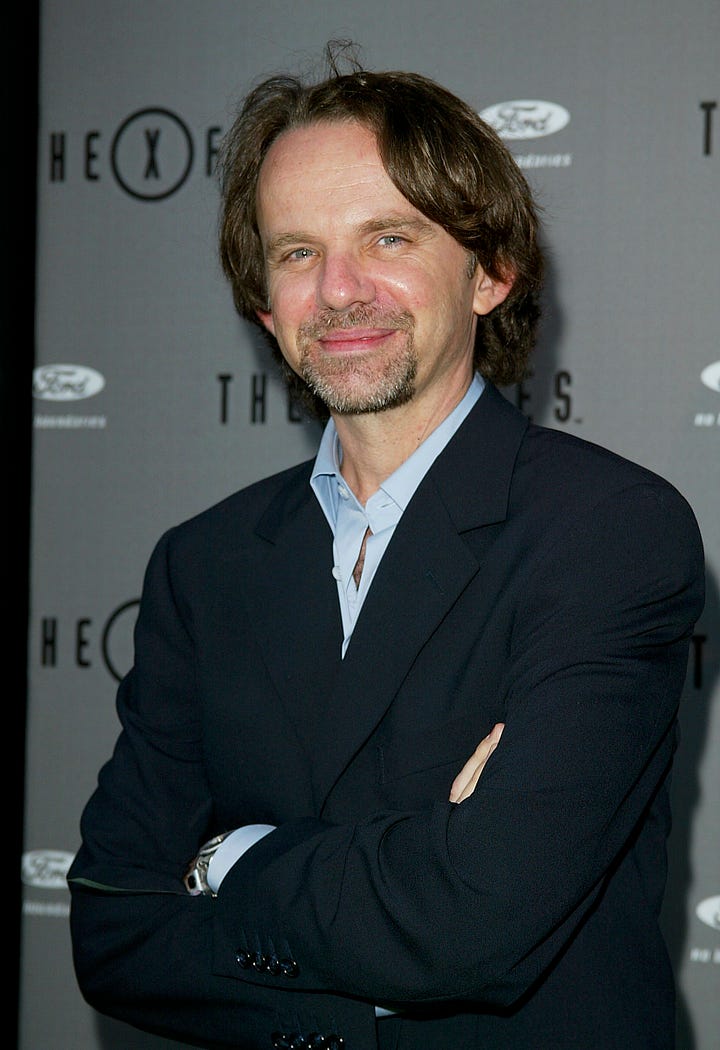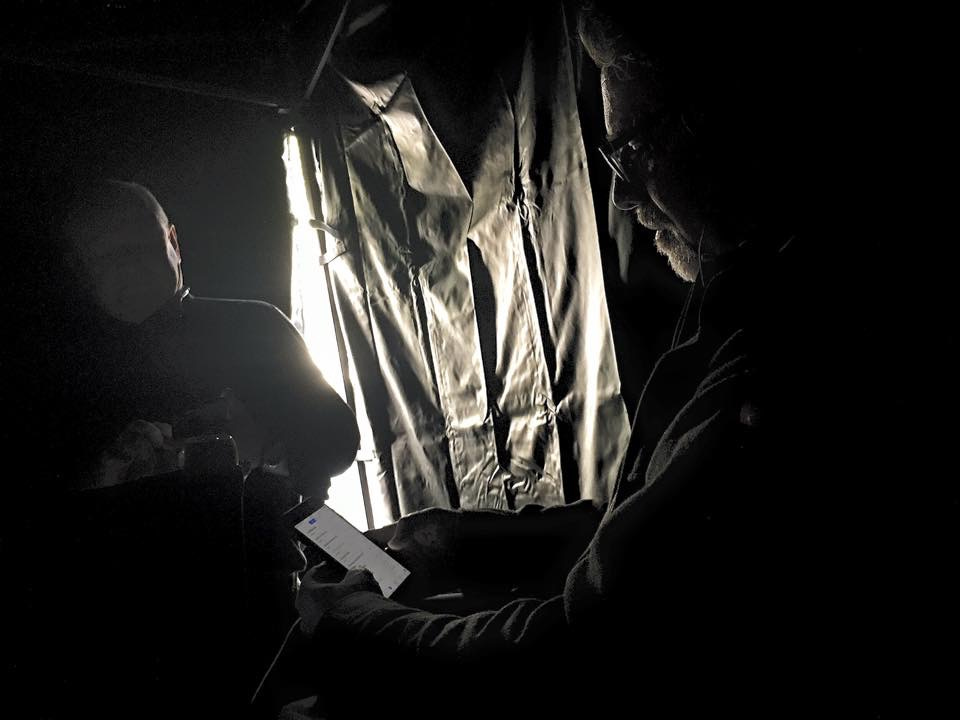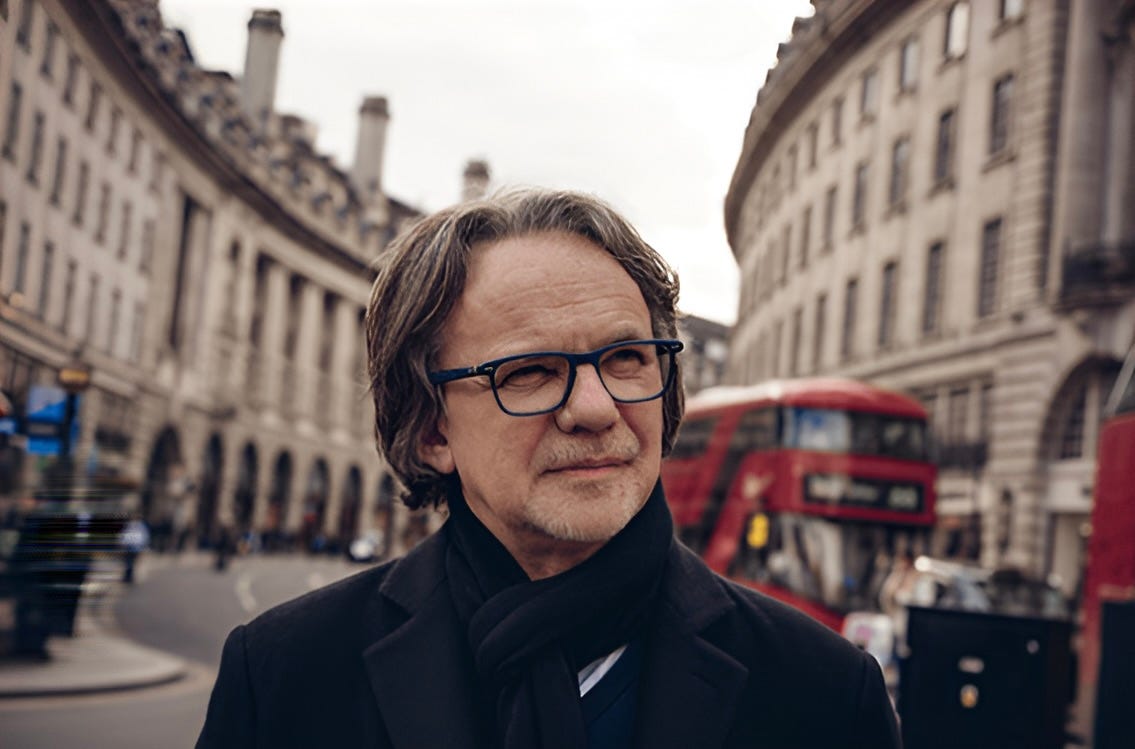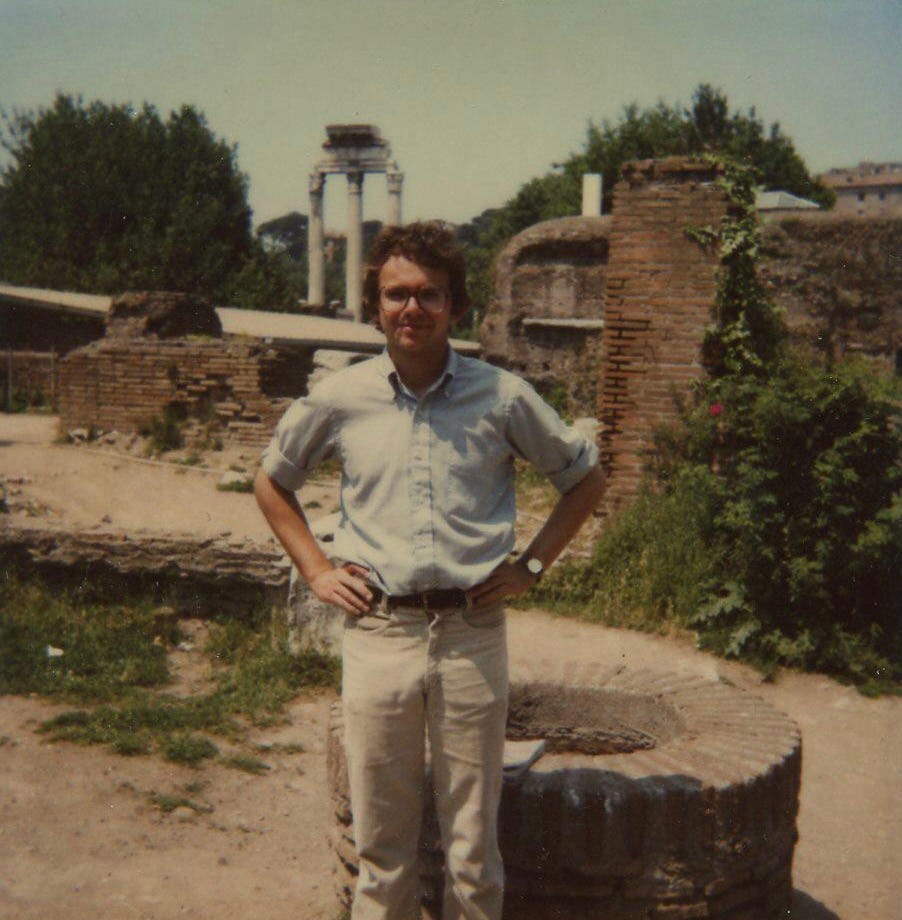Q&A: TV Showrunner Frank Spotnitz on What He's Learned from Trading Hollywood for Europe
One of the defining voices of 'THE X-FILES', the writer-producer transplanted his family to the U.K. a decade ago and, in doing so, reimagined both his life and career
Six or so years ago, I was anxiously preparing to move to the United Kingdom. It was a confusing and anxiety-ridden time, as almost every element of this move seemed daily undermined by forces beyond my control. A persistent dread had manifested around the question: would the geography of the international TV market in Europe prove unwelcoming to me despite my ambition to transplant much of my writing career from Los Angeles to London and the continent? A friend at the Writers Guild of America suggested I “speak to Frank” about this, as he was the expert on all such matters having already moved his own family and career to Europe a few years earlier. My friend was referring to Frank Spotnitz, one of the defining voices of “THE X-FILES”.
The problem was, Frank and I had never actually met. I immediately cold-emailed him, and got a reply twelve hours later. I just looked it up for reference. “I’d very much like to meet you and offer you any and all support that I can,” he had written back. He meant that, too. We were on the phone a day later for more than an hour. Upon my arrival in London, he took me out for a spectacular dinner (he has excellent taste in restaurants). And ever since, he has repeatedly and without reservation offered me whatever he could to make my life easier and better. He is an excellent friend.
For this artist-on-artist conversation, Frank and I decided to tackle his life in Europe and the career he rebooted there as a prolific television creator and producer as head of Big Light Productions. But first, you have to understand how extraordinary this geographical change was for someone in his position. By the time he left the States, he’d written on “THE X-FILES” and co-created its spin-off “THE LONE GUNMEN”, as well as co-wrote the story for the film THE X-FILES (1998) and co-wrote the screenplay for its sequel THE X-FILES: I WANT TO BELIEVE (2008). He’d created more TV series, too, including “NIGHT STALKER” (based on one of his favorite series of all time “KOLCHAK: THE NIGHT STALKER”). He was established, proven, and respected. Tossing that all aside to make TV overseas instead was a huge risk - but in the end, it paid off.
Since his move to London — which was followed by one to Paris and then another back to London — Frank has created the Emmy-nominated “THE MAN IN THE HIGH CASTLE” and co-created “RANSOM”, “MEDICI: MASTERS OF FLORENCE” and its sequel “MEDICI: THE MAGNIFICENT”, “THE INDIAN DETECTIVE”, and “LEONARDO”. All of these were produced under his Big Light banner along with numerous other series. We’ll discuss what he’s learned from this international experience - as much as a person as a filmmaker.
For television writers, I would especially pay special attention to the differences Frank identifies between how TV is written and produced in the U.K., Europe, and Hollywood, as well as his thoughts about the value of writers’ rooms and collaboration.
COLE HADDON: Frank, we’re odd ducks in that we traded our lives in Hollywood to live and primarily work abroad. Since doing so, you’ve written and produced many hours of television in a variety of European countries – countries that all buy, develop, and produce TV series differently than the U.S. does. What I’d love to do is interrogate what drove you overseas and what that adventure, both personally and creatively, has taught you. Along the way, maybe we can discuss the pros and cons of the U.S. system in the context of the European systems. So, what do you say?
FRANK SPOTNITZ: Sounds great! I left the States thirteen years ago, and it has been quite a ride. I don’t regret a single minute of it — the experience has enriched my life in countless ways that I never could have imagined — but I’d say this kind of adventure is not for the faint of heart.
CH: Let’s start with the decision to move abroad. You had, as far as I can tell, a thriving career in U.S. television. You’d played a huge part in “THE X-FILES”, its spin-offs, and the films. You had other TV series hit the air, too. What happened to make you trade all of that for a new start in Europe?


FS: I had been meeting with a wonderful British producer named Stephen Garrett every year since 2002. He would come out to Los Angeles, we’d have coffee, and he would always ask me about coming to the U.K. to do a series. I had lived in Paris in my twenties, and the idea of living and working in Europe was really appealing to me. So, I always told Stephen that I was interested, but, in truth, I couldn’t see how it would ever come to pass.
Then came the Writers Guild of America strike in 2007-2008. After it ended, I found that the studios were offering me half of my previous quote to develop. Suddenly, the idea of going to the U.K. — where my upfront fees would be lower, but in success, my back end would be really and truly meaningful — seemed like not such a bad idea.
Suddenly, the idea of going to the U.K. — where my upfront fees would be lower, but in success, my back end would be really and truly meaningful — seemed like not such a bad idea.
CH: When you and your family made that leap, did you feel at the time you were “all in”, or was it more of a long-term holiday in Europe you were willing to label a “fun experience” if it didn’t work out? I know when I did it — this was 2017, not long before we first met in person — it was an all-or-nothing thing. I think I was afraid if I had a parachute, I’d always be looking back.
FS: I wasn’t all in. My wife and I expected we would stay in London for at least two years and maybe as long as five, depending on how long the series lasted. But we never reached the point where we felt confident enough to buy a house. We’ve been renting for the past thirteen years, which I now look back on with some chagrin.
CH: I have to ask: what did your U.S. reps and friends think of the move? Were there a lot of attempts to dissuade you from blowing your career up?
FS: My American attorney was quite upset with me. I think he felt he’d invested all this time in my career and here I was abandoning it by going off to Europe. I ended up getting a new lawyer, while my agent at WME stuck with me one hundred percent. For years I’ve heard from him and many others that I was way ahead of the curve, seeing opportunities in Europe before anyone else. I’d like to say it was true, but, honestly, I didn’t think about it that way. Looking back on it now, I can’t believe the risk I took. When I left Hollywood, I still had deals in place for two different series with HBO. Going to Europe was like jumping off a cliff, trusting there would be some kind of water to land in. It turned out that there was a whole ocean waiting for me. Or at least the Mediterranean Sea.

CH: For context, where did you grow up, where was your identity primarily formed, before you arrived in Los Angeles and what was that transition like by comparison?
FS: My dad was a doctor in the Army, so I was born on an Army base in Japan and moved first to Colorado and then to Pennsylvania before he retired from the service and went into private practice in Phoenix when I was seven. I was the youngest of five boys, with a five-year age gap between me and my next oldest brother, so I ended up spending a lot of time by myself growing up. Movies and TV were pretty much everything to me.
I watched everything — just everything — and would often sit through the same movie two or three times in a row to take in as much of it as I could. There was no question in my mind what I wanted to do with my life when I grew up. I graduated from high school early to go to UCLA, intent on studying film, but my brother Tom died by suicide a few weeks after my eighteenth birthday. It completely wrecked me, in ways that I wouldn’t come to understand until many years later.
I watched everything — just everything — and would often sit through the same movie two or three times in a row to take in as much of it as I could.
CH: I can’t even begin to imagine.
FS: One immediate effect was that I ended up giving up on my dreams of Hollywood. Instead, I became the editor of the UCLA paper and, after graduating, a reporter for the wire services - UPI in Indianapolis and New York and the AP in Paris. That was seven years of my life.
CH: What changed? How did you wake up from the trauma?





